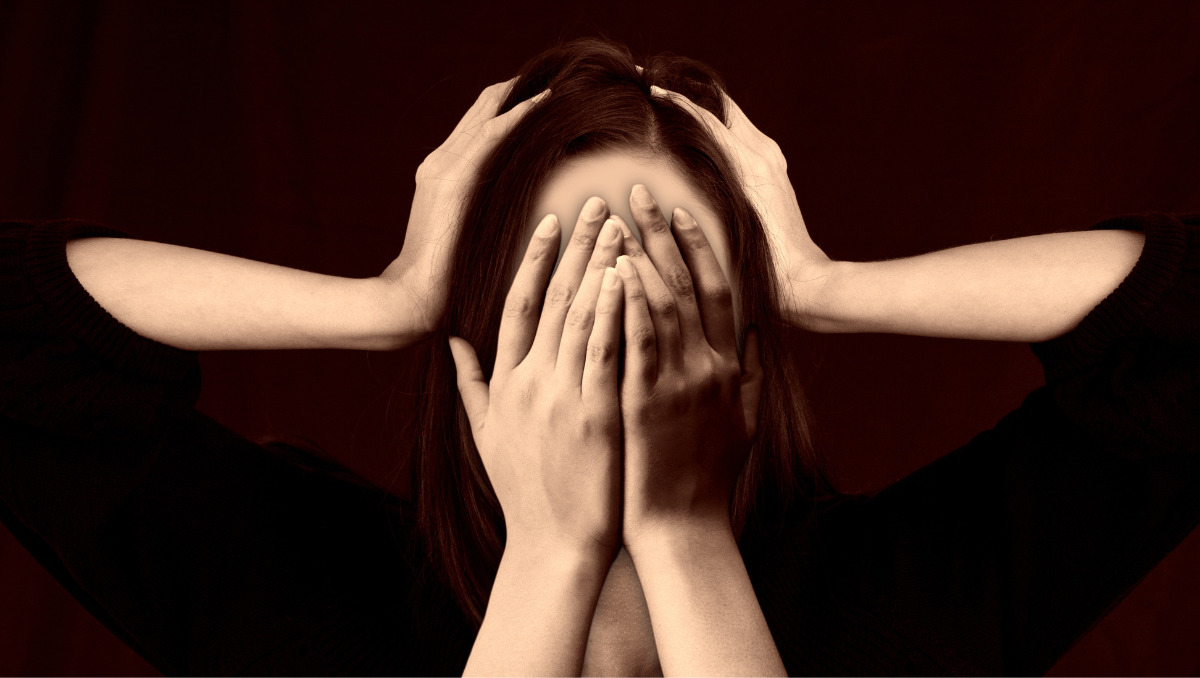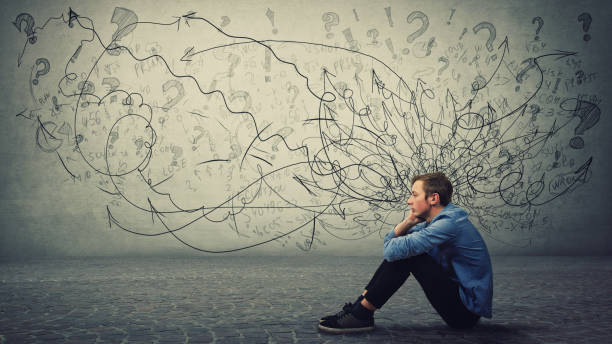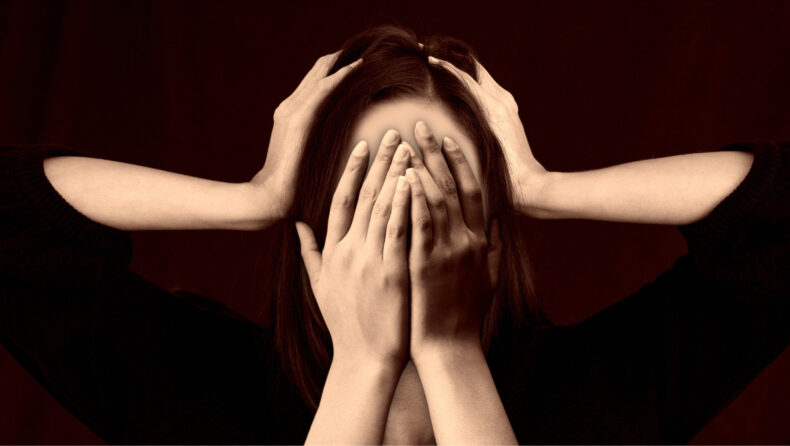Anxiety stood the test and trials of time, tracing back its footprints to 5000 BC, it swells its root in the heart of human experience, while simultaneously holding a bizarre record of 2000 years of history. Golden age Physicians and Philosophers made an attempt in drawing distinctions between Anxiety and other terms such as ‘Nerves’ and ‘Stress’. But Anxiety still didn’t get acknowledged as a separate illness until the late 1980s.

According to a report published by National Library of Medicine on ‘A History of Anxiety’, it was stated that Epicurean and Stoic Philosophers were keen to give suggestions about the ways one can achieve an anxiety-free mind, their studies later on became the foundation for Modern day Psychology studies.
Do you know? Our Ancient Indian Records carry evidence that disorders like PTSD existed even in that age, as they contain descriptions that are similar to the aforementioned disorder.
Understand Anxiety before running away from it
Anxiety is a glum human experience, when you feel nervousness, fear, frustration and irritation both physically and mentally. You find trouble focusing on work and often zone out for prolonged intervals of time amidst engaging in an activity. People with anxiety avoid eye contact, social interactions and isolate themselves from the public eye, as they fear judgment from others. You may also get cold feet and an upset stomach as these are some of the common tropes anxiety rope you in.
Anxiety comes as a part and parcel with every new major change that happens in our life. Unexpected events or recurring chain of worrisome thoughts that won’t let us rest or get a goodnight’s sleep are some of the unpleasant reasons that make us dread this disorder. There are various kinds of anxieties that students and adults deal with on a regular basis. Remember your age doesn’t make your problems any less significant or any less worthy of attention. There’s no proven way that says only adults can have and deal with anxiety.

Speculations around Past-Future, a Silent trigger to anxiety
Anxiety can be short-term; you are worrying too much about how you’ll behave in the get-together scheduled for the evening and long-term; where you worry about your future path and overthink about the decisions you have taken in past and how they’ll affect your future.
Things that happened in our future and past are never in our control. But if we think about living in the present moment, you’ll find the gap between you and the timelines that have already existed and yet to exist is huge and plays no role in your life at this moment whatsoever. Until and unless, you are making a life-changing decision, don’t go into that rabbit hole. Carpe Diem! means making most of the ‘present moment’. They say it not for no reason.
Anxiety does not see Age factor– Be it adults or students
For students, a general notion is that anxiety stems from the need to perform well in exams and maintain grades and whereas for adult athletes, an assumed notion is that they can only worry about their upcoming competitions, which is not a healthy way to approach the anxiety disorder. When we define anxiety we don’t look for reasons that can constrain and restrict our imagination. Anxiety holds a strong ground of its own in our minds. And when we narrow down the scale of judgment like that, it pulls us further away from an informed solution and approach.

Science behind Anxiety
We are yet to abstract a concrete reason that may be responsible for Anxiety disorders but we can form logical decisions around it with the help of data and survey research available to us. Anxiety Disorders were officially recognised by the American Psychiatric Association in 1980.
Before that the patients of anxiety didn’t have a proper way of explaining or segregating their condition from other illnesses. However Robert Burton, a 17th century English writer made sure that there was talk going around anxiety by describing its flaws in his book ‘The Anatomy of Melancholy’.
Following are some of the lesser known facts about Anxiety:
Genetics play a supporting role for the dance of anxiety
Studies by HealthLine have indicated that a genetic constituent may play a role in triggering anxiety in some individuals. However, it’s not true for all as anxiety can be caused by various environmental and social factors as well.

Anxiety and its beef with our health
Have you ever felt uneasiness in your stomach as the deadline for that assigned task approaches nearer? Rushing to the restroom and feeling muzzy in the head are general symptoms of this disorder. According to a paper published by BigThink on Anxiety, we found that people who often get cold feet or hands, could be an indicator that they test positive for this foul phenomenon. BigThink further explained- “When we feel anxious, the brain’s fight or flight instinct kicks in, and the blood flow is redirected from your extremities towards the torso and vital organs.”
Our sense of smell can be at risk
Our Olfactory system is responsible for processing smells. But in case of people who suffer from high levels of anxiety, their emotional and olfactory system become closely-tied, and when this happens the person involved may find conflicts with natural smells and title them the bad smells, as this interlink slightly alters their perception of sense of smell, explains Journal of Neuroscience.
Anger Danger
According to Discovery mood, “anxiety is often connected with overstimulation from a stressful environment or threat, combined with the perceived inability to deal with that threat. In contrast, anger is often tied to frustration. When anxiety is left unacknowledged or unexpressed, it can turn into frustration which then easily leads to anger.” If you’re a person who deals with anxiety, then make sure you do not try to suppress your emotions as they play a major role in regulating your mood. The more you talk about it, the healthier your relationship with anger issues becomes.
Is this why you are forgetful?
Mayo Clinic suggests that Anxiety can make you forgetful, as you remain under long intervals of stress. It so happens that oftentimes you disconnect with reality, as in the case with anxiety you live inside your head and the physical world becomes less conspicuous to your eyes and reality.

Saving yourself from the curse of Anxiety
Practice Meditation. Stoics say you can find everything you want within yourself, as ambiguous as this statement sounds. It simply means that as the joy of life can be found within so can be the cure of your grief. When you are kind to someone, they in return show kindness to you. So if you treat your mind and body well, you’ll be able to escape this spiral of self deprecating thinking.
Buddhism teachings not only promote acceptance of self and forgiving oneself but also offers the solution, helping one find a way out of the tunnel. Worrying about anxiety can cause you even more anxiety. So don’t try to numb down this feeling by taking rash measures. Face it, acknowledge it and free yourself from this feeling.
“If the problem can be solved, why worry? If the problem cannot be solved worrying will do you no good”, said the 8th century Buddhist Monk Shantideva.
Incorporate empathy in your stance of life. You’ll find the true purpose of your life and you’ll find there is no joy better than finding yourself helping others and accompanying them in their path to move forward.













